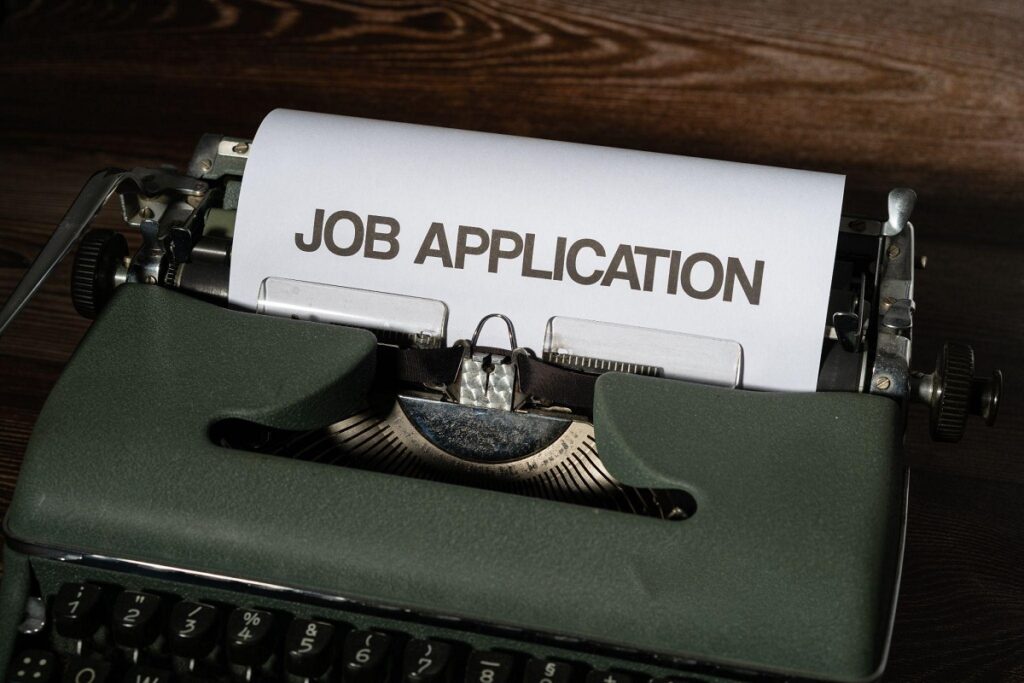Applying for your First Job: The Do’s, The Don’ts, and the Never Do’s

Preparing for the interview is one of the first tasks you’ll do when applying for a new job. You’ve learned how to prepare for interviews throughout college; now, you’re ready to test your knowledge. But, before the interview, you’ll need to go through the application process of the company you’re aiming for.
Here are some job-interview pointers you need to know to help increase your chances of landing the right job for you:
The Do’s
1. Do research on the companies you’re applying to
Researching will help you know exactly what they do, their long-term goals, and who their clients are. It also shows that you’re serious about the position and have done some investigation into the company before submitting your application.
This step may also give you an idea of what their culture is and whether it’s a fit for you. Apart from that, you can also ensure that the company doesn’t participate in illegal recruitment practices.
2. Do reach out to your network
Many companies will ask you to send them your resume. However, they won’t tell you how to format it or what they’re looking for. Reach out to people who work there and ask them how best to send your application.
If you have a close relationship with an employee in the company—a friend or relative—they can also help you fix your resume so it looks good and stands out from the rest of the applicants. Attending a Career Fair can be a powerful networking boost, opening doors to potential employers and gaining insight into your first job hunt. On top of this, they can recommend you as a candidate if they think you’d be a good fit for their organization. They may also be able to put in a good word or vouch for your skills.
3. Do update your materials
Your curriculum vitae (CV) or resume is essential to show employers your credibility and may also show if you’re capable of pursuing the position.
As such, your resume should always be up-to-date. Include updated information and credentials in your resume, such as if you have completed online education, certification courses, or taken on new responsibilities since your last job application.
The Don’ts
1. Don’t apply for positions you’re unqualified for
Although you may say that you like overcoming challenges or that you’re a fast learner, applying for jobs that you’re clearly unqualified for should be out of the question. A valuable study of successful first-job applications reveals the importance of research, tailoring, and showcasing both hard and soft skills. Sometimes, people apply for a job just because it seems interesting, and some apply because the work setup is one they prefer, like a hybrid work setup.
However, they often lack the right skills for the job. If a position requires technical skills or knowledge in a specific field, it’s best if you don’t apply for it.
2. Don’t stress too much

The application process can be stressful regardless if you’re a new graduate or an experienced professional. However, you must keep calm so your fears won’t take over, preventing you from going through the application.
For instance, you may be considering applying for a job in the UK for a world-renowned company. Make sure to prepare yourself with the interview questions and the exam to lessen your stress and worries about not passing. A degree in healthcare opens doors to diverse career paths, but targeting your resume and skills to specific roles will shine during your first job application. You can also do some calming exercises to get the nerves out of your system. In any case, keeping yourself composed can help you land the right job for you.
3. Don’t send your application without proofreading
Read your application twice or thrice before submitting it. Ensure your information is correct and complete. However, you also need to consider writing it as clearly and concisely as possible for the reviewers to go through your application easily.
HR interviewers and employers usually have many applications to go through during the hiring season. Writing your application clearly and concisely may help them look at it thoroughly instead of just skimming through it.
The Never Do’s
1. Never miss the application deadline
A common mistake people often make is turning in their applications late. In some cases, companies will have deadlines for accepting applications for new positions.
However, sending yours late can lessen your chances of moving to the next stage or even landing the job at all. Early applicants may have already filled the position you’re gunning for.
2. Never lie in your resume or CV

Lying in your resume and interview questions can hurt your chances of getting hired. Employers want people who can do their jobs well right off the bat, and they don’t want to spend too much time training them until they get the hang of things.
If you lie and they find out, they may fire you. This consequence may also extend to future employers as they won’t want to hire someone untrustworthy.
Time to Get a Job
Applying for a job is serious business, but it doesn’t have to be overly nerve-racking. If you prepare, go into the interview confidently, and explain specific details about the job you want, then you should feel good about leaving the interview.
But don’t get discouraged if you don’t land the position immediately. Remember that most companies will reject many applications before accepting one. These key pointers are relevant wherever you’re looking for a job, whether you’re applying for jobs in the UK or Asia. Use what you’ve learned to improve on the subsequent job applications, and you’ll be well on your way to landing the right job for you.
